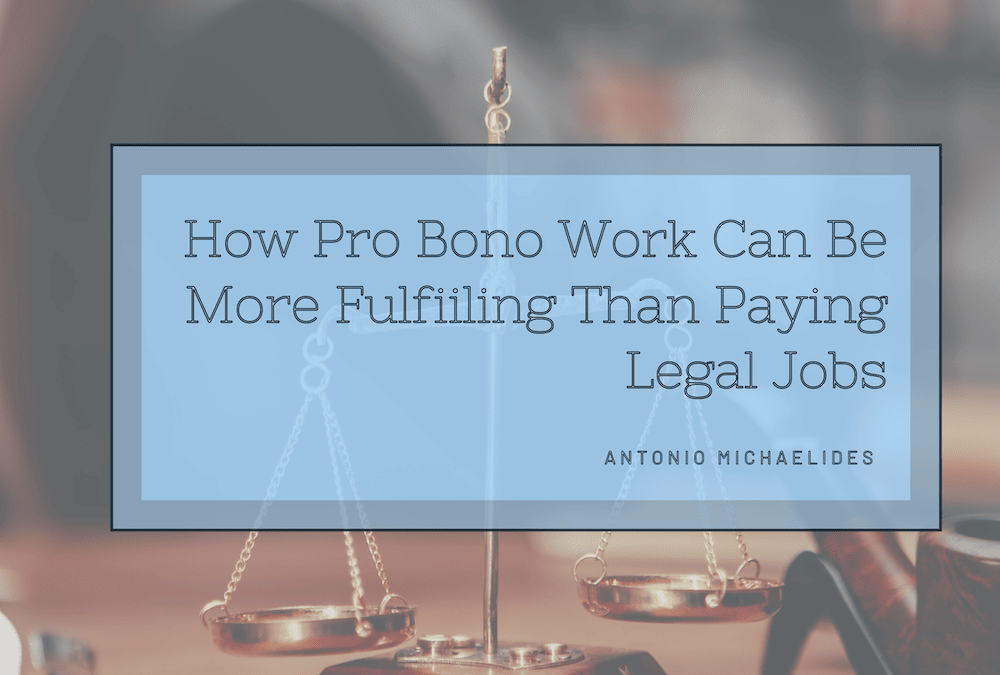The phrase “Pro Bono” is short for the Latin term “pro bono publico”, which means “for the public good.” It’s usually associated with the legal profession and means providing legal services and resources to clients who aren’t able to afford legal help.
As a practicing professional, it might seem counterintuitive to provide services for free or at a reduced rate but there are many ways that this can be beneficial, not only to the people receiving the services but to the one providing them.
Spiritually Gratifying
There are a few possible reasons that a lawyer would donate his/her time and expertise. A lawyer may opt to offer their services for free if they feel that there is a need or if they’re truly invested in the issues surrounding a particular case. It could be that the people in need of these services are unable to afford them. This is most evident in low-income communities.
Hands-On Experience on the Field
It also provides young lawyers with training and hands-on learning experiences and allows them to build a reputation as they grow in their careers. It also provides networking possibilities, as the practitioner would most likely step out of their office and meet other professionals outside their immediate circle of colleagues.
It’s important to note as well that the ABA encourages lawyers to provide at least 50 hours of pro bono legal services every year, as a way of giving back to those in need.
Work on Cases You Are Passionate About
When a lawyer provides work pro bono, they’re making a statement. They’re saying that they care about the cases that they’re taking on and that this is the kind of work that they want to be doing. Unlike with a paid legal job, they’re able to take on cases at their discretion. Lawyers can choose to work on cases that involve issues that they are passionate about, or even on cases that they just might not have had the opportunity to work on otherwise.
This is what makes practicing law more fulfilling. It also makes it more than just a job. Ultimately, pro bono work allows practicing legal professions to show that it’s not all about money, but about giving back to communities in need.
